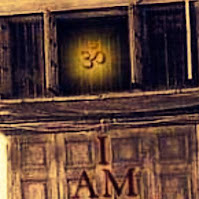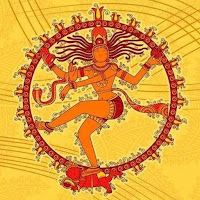tat - that; yat - which; adresyam - is not the object of sense perception; agrāhyam – not an object of organs of action; agotram – unborn; avarṇam - without any attributes; acakṣuśśro- tram - not eyes or ears (not a sense organ); tad that; apāṇipādam - which has no hands or legs (not an organ of action); nityam – eternal; vibhum - which becomes many; sarvagatam – all-pervasive; susūkṣmam - the most subtle; tat - that; avyayam - free from decline and dis- appearance; yat – which; bhūtayonim - cause - of all beings; dhīrāḥ - those who are qualified; paripaśyanti – see very clearly
Adreśyam : it is not an object of senses. Brahman, the subject matter of parā-vidyā, is not an object of your perception... Brahman is not an object of the sense organs because it is the subject. Here we are negating the whole world as non-brahman.
Agrāhyam: it is not an object of organs of action like hands and legs. Feet cannot reach it; it is not located in a place. It is not available for hands to grasp, that is, it is not an object. It is not a place or an object that you can handle. You cannot shake hands with Brahman.
Agotram : it does not have a gotra, lineage. Brahman is neither a gotra nor has a gotra. One should not search for the gotra of Brahman. Somewhere you stop, you draw the line. Brahman is not born, it has no gotra. It is agotra, unborn.
Avarṇam :it is free from varṇa. Varṇa is that by which objects are described... That which does not have attributes of a substantive is avarṇa. If Brahman has attributes, it will be one more object in the world.
Perhaps Brahman is a sense organ or an organ of action. The teacher negates it by saying, acakṣuḥ-śrotram, not eyes or ears... Brahman is not a means of knowing... Further it is apāṇi-pādam, that which has no hands and legs or that which is neither hand nor leg.
Nityam : it is eternal. It is not bound by time. The word ‘agotram’ negates a beginning for Brahman. Here the word ‘nityam’ negates the end. Brahman is free from beginning and end.
Vibhum : it becomes many. All the descriptions given so far may give rise to a doubt that Brahman may be śūnya, non-existence... It becomes ‘as though’ many. It is in the form of the entire cosmos without undergoing any change... nitya and at the same time vibhu.
Sarva-gatam : it is all-pervasive... Everything is located in space. Space is ‘located’ in consciousness, but consciousness is not located in space. Being the cause of everything, Brahman pervades everything, as the reality or cause of everything, and therefore it is sarva-gatam.
Susūkṣmam : the most subtle... The only way to understand Brahman is to recognise it as the invariable in the knower, known and knowledge... If I try to see all-pervasive Brahman, it shows the inappropriateness of my search. The seer is Brahman and Brahman pervades him.
Tad avyayam: it is free from decline and disappearance. Brahman neither exhausts itself and disappears, nor declines and disappears. It remains the same. Only then can we understand Brahman as it is. It is not that once upon a time there was Brahman, and then it became the world.
Bhūta-yonim : it is the cause of all the bhūtas, elements and elementals. Yoni means cause... Brahman is the cause for everything, including all the gross and the subtle worlds. Bhūtas are the five elements, space, air, fire, water, and earth.
Dhīrāḥ paripaśyanti : those people who are qualified and who have this knowledge recognise Brahman as themselves alone... For gaining this knowledge a two-fold preparation is required. One is cognitive skill, and the other is maturity... Such a person is compassionate.
~translation and commentary on Mundaka 1.1.6 by Dayananda
What Is Brahman and Who Am I to Say (transcreating Mundaka 1.1.6)
Brahman is not the natural universe nor an object of worship nor a holy soul nor some moral virtue.
Brahman is unborn and eternal, appearing as many but remaining the immutable one without a second.
Brahman is all-pervasive, depthlessly subtle, ever-constant, and the causeless first cause.
The qualified one who realizes that absolutely knows all is brahman and brahman is oneself.
~tx-SR
Some Mundaka footnotes
Among the gods, Brahmaji came into being first; he is the creator of the entire universe and also its protector. He taught the knowledge of Brahman which is the most exalted among all forms of knowledge, to Atharva, his first son.
~Mundaka 1.1.1 (tr-Dayananda)
Among the two, the aparā-vidyā is Ṛgveda, Yajurveda, Sāmaveda, Atharvaveda, phonetics, know-how of rituals, grammar, etymology of Vedic words, science of metres, astronomy and astrology. And parā-vidyā is the one by which that imperishable Brahman is known.
~Mundaka 1.1.5 (tr-D)
On the other hand, parā-vidyā refers to the cognitive vṛtti by which the akṣaraṁ brahma is understood. The knowledge, identity of the self with Brahman—that takes place in the buddhi, on hearing the words of the upaniṣad, is called parā-vidyā. Brahman, the subject matter of the upaniṣads, is to be known. Here, the knowledge of Brahman alone is desired to be called parā-vidyā.[40] Even though one can have all the words of the upaniṣads in one’s head, still one will not gain the knowledge of Brahman. Mere words of the upaniṣads are not parā-vidyā. One has to make an effort in going to a teacher and asking for this vidyā. Unless one chooses to know Brahman, this knowledge does not take place.[41] With vairāgya, objectivity, gained by understanding the limitations of all one’s other pursuits, when one exposes oneself to this teaching and understands, “Ah! I am Brahman,” it is called parā-vidyā.
The self is always self-revealing. It happens to be Brahman. We do not know that fact. Therefore, the removal of ignorance of the self being identical to Brahman alone is para-prāpti, gain of Brahman. It is the gain of what is already gained.
~Mundaka 1.1.5 commentary by Dayananda









